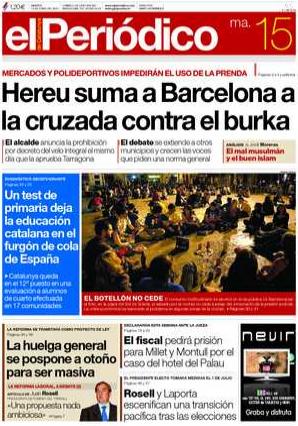Thus the headline to a report that the father and brother of a young Canadian woman named Aqsa Parvez have been sentenced to life imprisonment for her murder in 2007.
The report begins: “Just days after a Punjab man was jailed for life in honour killing of his daughter-in-law, a Pakistani father, along with his son, here too faces life behind bars for honour killing of his young girl for her refusal to wear the hijab.”
But it seems clear that Aqsa Parvez’s tragic death did not in fact result from “her refusal to wear the hijab”. Though this has been the media spin put on her murder, it is a distortion.
The friend at whose house Aqsa was staying after leaving her own home stated that, at the time of Aqsa’s murder, her rejection of her father’s demand that she wear a headscarf was not a major cause of conflict between Aqsa and her family.
According to one report, the issue of the hijab had arisen in 2006 but had been resolved after Aqsa left home on an earlier occasion: “Upon her return, her mother took her shopping for Western clothes and she was allowed to attend school in non-traditional clothes.” Another report confirms that, following this dispute, Aqsa’s father “relented, and allowed her to wear urban-style jeans and T-shirts to school”.
The conflict would appear to have been a much broader one between a young woman who wanted to live a westernised lifestyle and culturally conservative male relatives who regarded her behaviour as an attack on the family’s honour. Such notions of honour are a feature of many backward rural societies across the world and are not associated with any particular faith.
So why was media so intent on depicting the hijab as the main motive for Aqsa’s killing? The reason is is not hard to identify. It was an attempt to pin the blame on Islam as part of an ongoing campaign against Muslims and multiculturalism.

 Spain’s government plans to ban the use of the Islamic burqa in public places under a proposed new law on religious freedom, the justice minister said Tuesday.
Spain’s government plans to ban the use of the Islamic burqa in public places under a proposed new law on religious freedom, the justice minister said Tuesday.